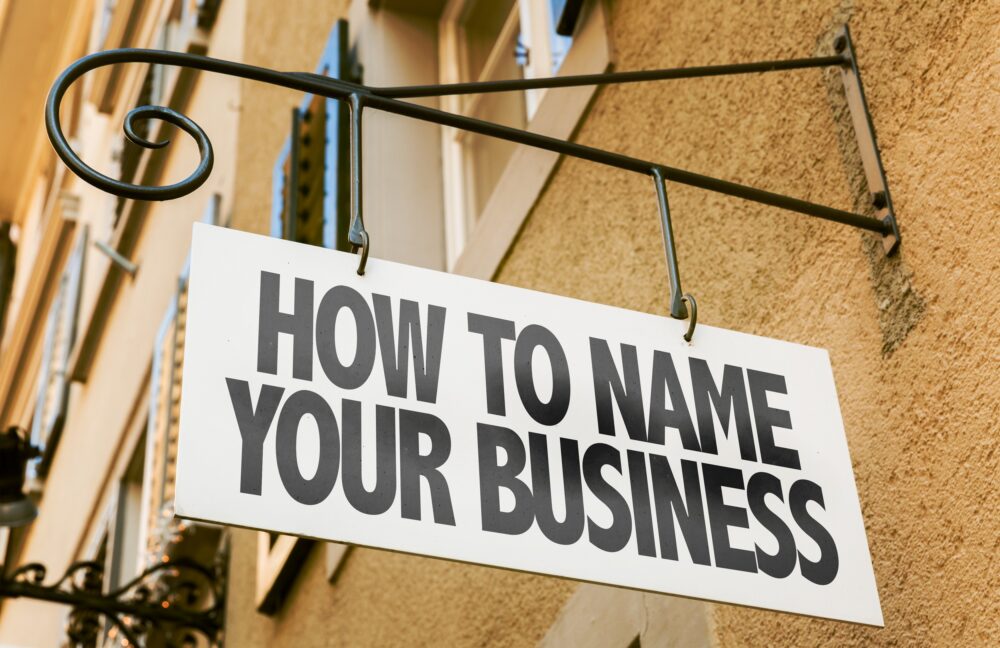Choosing a killer company name is one of the most challenging parts of getting your startup off the ground. The right name can get you off on the right foot and lend itself to branding and marketing. A bad name, not so much.
A great startup needs a unique and unforgettable name that shows what your business is about and suits your target customers. But if that wasn’t enough, you need to make sure that whatever name you choose is available to use. That means you need to determine if it’s already on the Companies House register and doesn’t breach any trademark laws.
With over 4 million registered limited companies already in the UK and over 500 thousand new companies registering every year, company name availability can make choosing the perfect business name challenging. Our guide for startups and new businesses will help you find the perfect business name and make sure it’s available to use.
Choose Your Company Name
Choosing your business’s name is much more complicated than it sounds. Although it’s one of the most enjoyable parts of starting your own business, it can be a challenge to sum up your exciting new venture in a word or two. It can become frustrating trying to nail down what you want to name your company. A good business name needs to be:
- Snappy
- Succinct
- Memorable
- On brand
- Reflective of what you do.
A business name also needs to be enjoyable to say, see and hear, which can be tricky. There’s no one way to come up with a business name, but it’s a good idea to:
- Avoid getting too personal
- Use your local area to your advantage (depending on your business type)
- Add a little humour (if appropriate)
- Avoid the mundane.
When you’re trying to come up with a name, try to jot down different options. Not only will this give you a wider choice, but it will be helpful if the name is already on the Companies House register.
Do You Need to Check Your Business Name?
All UK limited companies must choose a business when setting up their private limited company, and most companies will need to end their business name with “Limited” or “Ltd”.
If you are setting up a limited company, you’ll need to choose a name for your business to register with Companies House. But not all companies need to choose a name:
- Sole traders can trade under their own name or choose a name for their business but do not need to register it. All official paperwork like invoices and letters must include the sole trader’s name and business name if applicable.
- A business partnership can choose to trade under individual partner names or choose a business name. Partnerships do not need to register the name, but it must be on all official paperwork with the partners’ names.
Despite not needing an official business name, sole traders and partnerships should consider a name for marketing and branding purposes.
Follow Companies House Rules
Companies House handles registering and incorporating limited companies and has stringent rules for new company names. If you’re looking to set up your limited company, it’s a good idea to familiarise yourself with the restrictions on naming your business:
- Your business name cannot be the same as another registered company.
- It cannot be too much like another company name or trademark.
- You cannot register names with minor differences to existing businesses like a change of punctuation or character.
- Your name cannot be offensive or include sensitive words. Sensitive words include suggestions of a connection with government or local authorities such as “accredited”.
You can register your company with Companies House and then use a different trading name. But if you decide to do this, you cannot use “limited”, “Ltd”, or similar in your trading name.
Check Name Availability
Companies House does not allow new businesses to register with the same name as an existing business during company formation. So you need to check if your company name is available.
There are two ways to do so:
Unfortunately, with over 4 million registered businesses in the UK, there is a possibility that another company will have already registered your chosen name. If this happens, you will need to register with a different name.
For this reason, when choosing your company name, it’s good to be pragmatic and choose a few company names, so you have a backup if any are already registered.
Check Website Domain Registrations
If you’ve searched the register for your company name and your name is available, then congratulations, you’re able to register your company with that name.
But before you register it, it is worth checking to see if the web domain of your business is available. While there are many domains available such as “.io”, the majority of consumers will only trust well-known domains that end in “.com” or the local version like “.co.uk”.
You can check to see if your domain is available via websites like GoDaddy. Their quick domain checker makes it easy to determine if your business name is viable. If the domain for your company isn’t available, but you want to continue with your company name, it’s worth checking to see if the domain is in use. If it’s not, you may be able to contact and buy the domain from the current owner. It’s worth noting that some people buy domain’s to sell them to businesses and often charge a premium price.
Register your company with Mint Formations today to secure your business name. Choose from our range of company formation packages for as little as £12.99.

